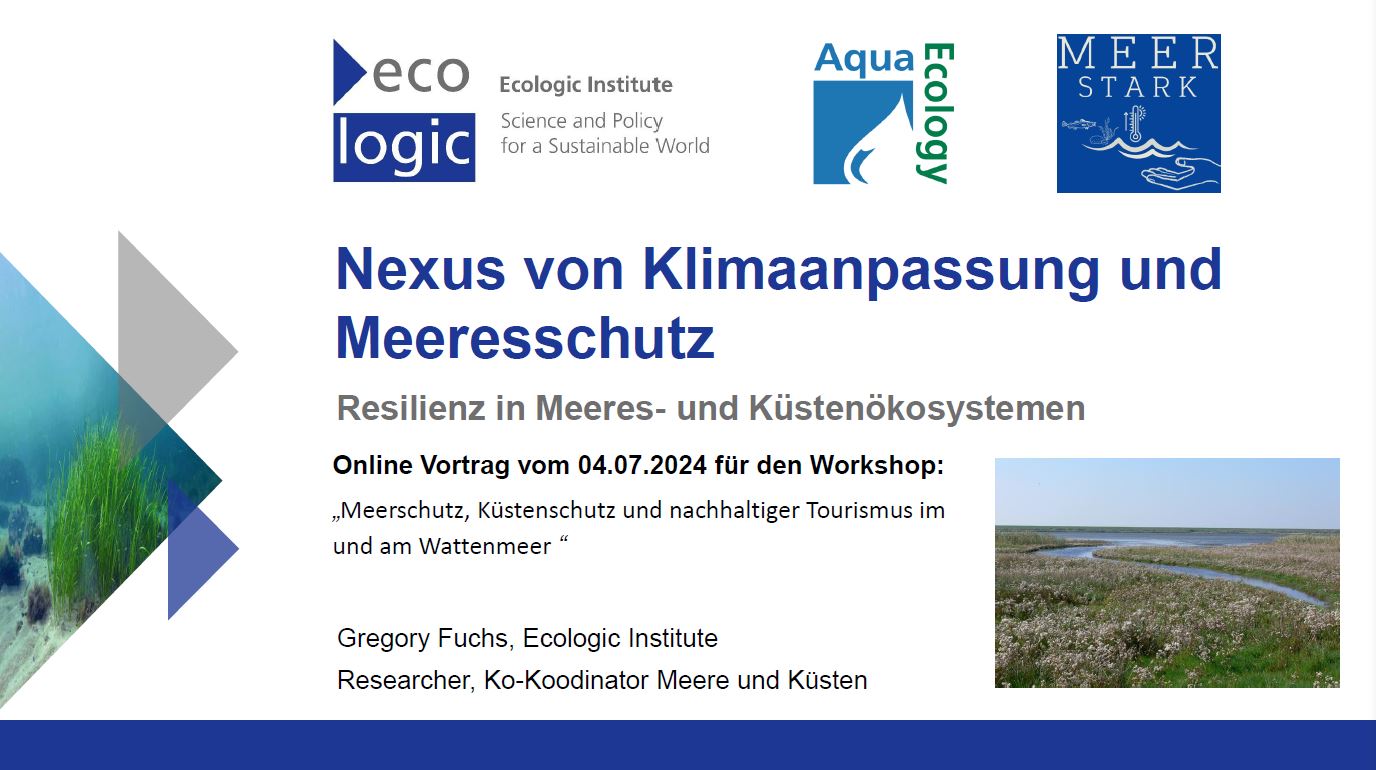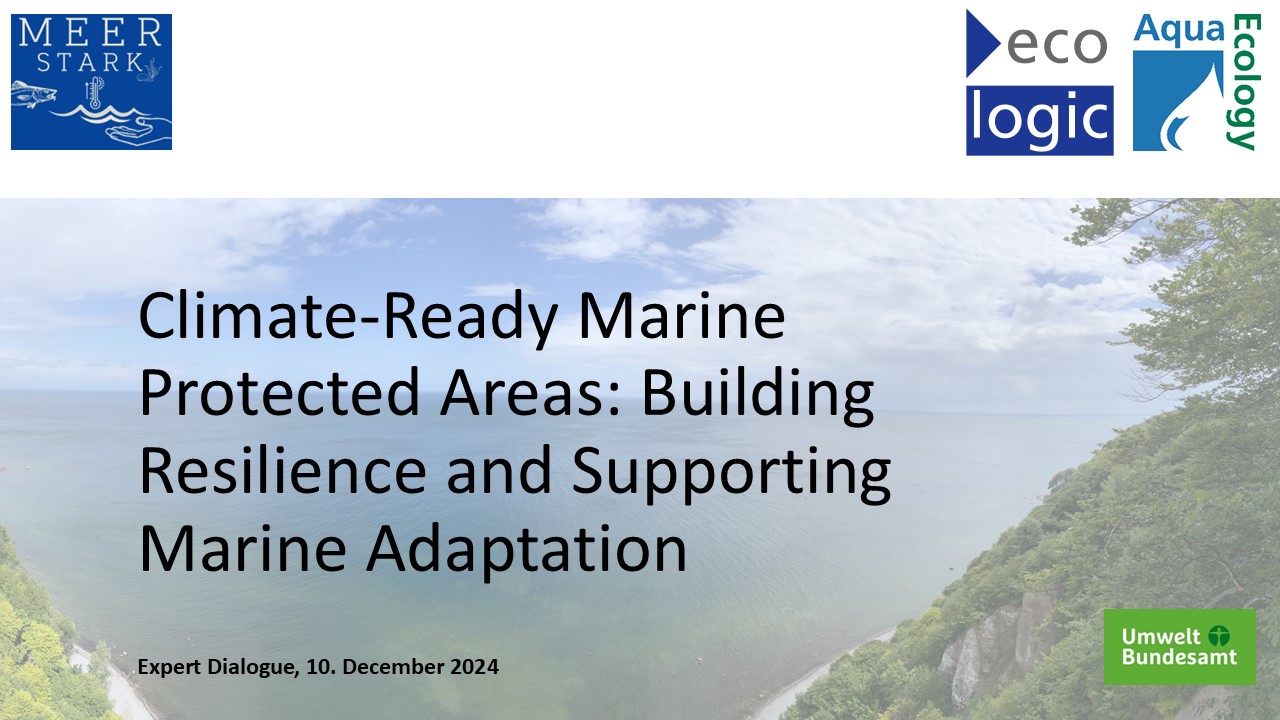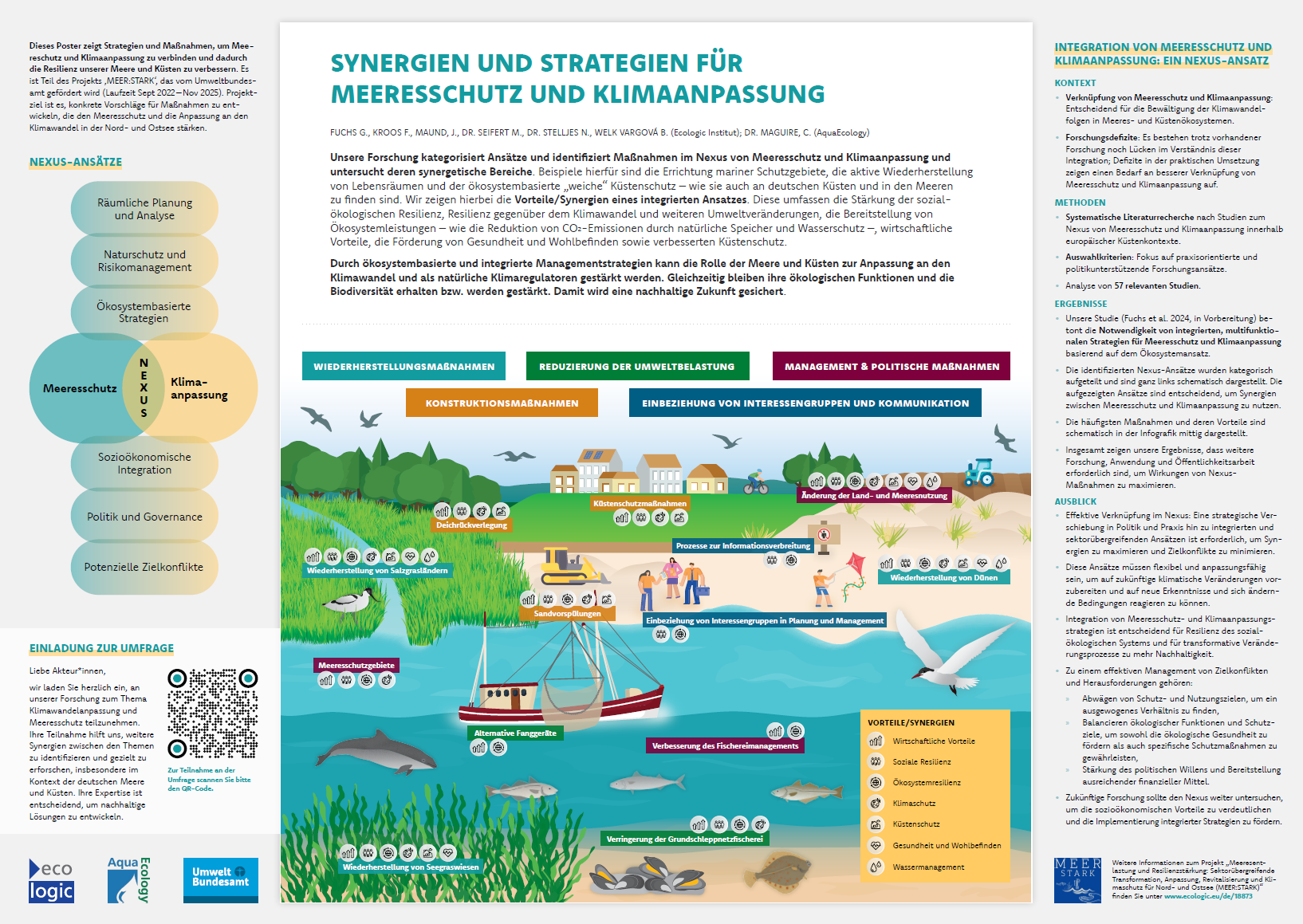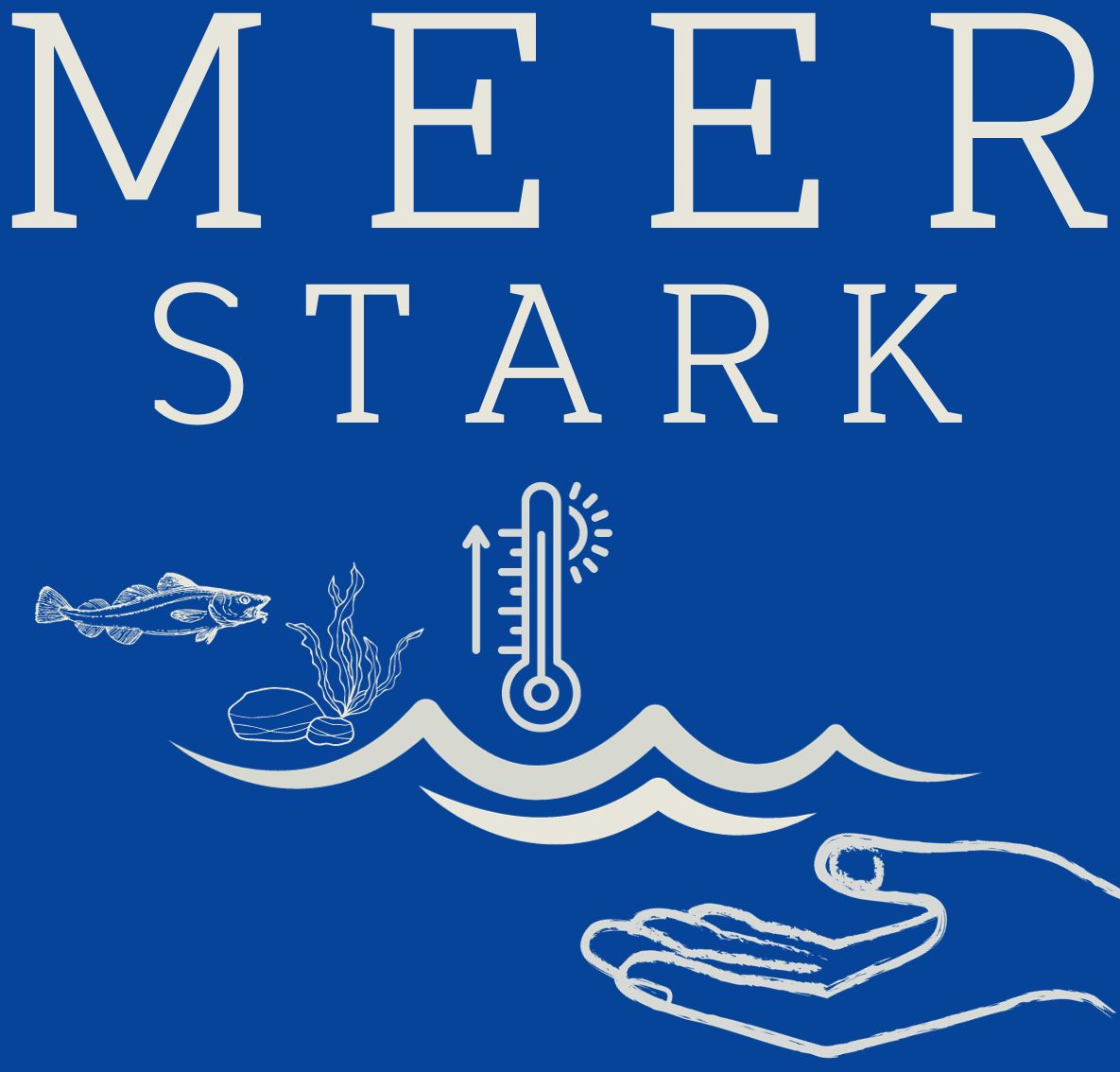Strengthening Marine and Coastal Protection in Wittmund
Collaborative Workshop on Marine Conservation, Climate Adaptation and Sustainable Tourism
- Presentation
- Date
-
- Location
- Wittmund, Germany
- Speech
On 14 November 2024, the district of Wittmund (Lower Saxony, North Sea coast, Germany) hosted a workshop addressing key challenges at the intersection of marine and coastal protection, sustainable tourism, and climate adaptation. For the first time, marine protection will feature as a dedicated focus in the district's climate protection and adaptation concepts, reflecting a progressive approach to tackling climate impacts in the North Sea region.
As an invited speaker, Gregory Fuchs from the Ecologic Institute shared insights on integrating marine conservation and climate adaptation to enhance resilience in marine and coastal ecosystems. He highlighted pressing challenges, including threats to biodiversity and coastal communities from sea-level rise, erosion, and rising temperatures in the Wadden Sea, emphasizing the need for innovative and collaborative solutions.
Gregory outlined the potential of ecosystem-based approaches, such as managed realignment and Nature-Based Solutions (NbS), to restore natural habitats like salt marshes and wetlands that buffer against sea-level rise and storm surges. Integrating climate adaptation into marine conservation strategies, he argued, ensures the long-term health of ecosystems and the quality of life for coastal communities.
Key strategies discussed included:
- Promoting soft coastal protection measures, such as dune restoration and sediment management, over traditional "hard" infrastructure to maintain natural coastal dynamics.
- Supporting ecological connectivity through habitat restoration and spatial planning to enable species migration and resilience.
- Incorporating socio-economic benefits, such as sustainable tourism and nature-based livelihoods, to enhance stakeholder engagement and economic viability.
The presentation also emphasized the need for a holistic, coordinated approach, involving collaboration among municipalities, citizens, the tourism sector, conservation organizations, and government authorities. He called for active restoration in areas where natural processes are disrupted, sustainable grazing practices to simulate natural dynamics, and innovative monitoring techniques to guide decision-making.
Highlighting successful local examples:
• Coastal ecosystem restoration to help habitats like the Wadden Sea adapt to rising sea levels.
• Flexible management practices that balance protection for people and nature.
• Transboundary cooperation and knowledge-sharing to strengthen conservation and adaptation efforts.
The need for long-term commitments, scientific research and monitoring to establish effective measures and promote climate adaptation and biodiversity conservation was emphasised. The presentation was a call to establish resilience-based adaptive management as a cornerstone of sustainable regional development.
The workshop brought together stakeholders from environmental and coastal protection authorities, national park management, agricultural and fisheries advisory groups, regional tourism organizations, and climate protection initiatives.
The approaches co-developed during the workshop serve as a foundation for the creation of concrete measures for the climate protection and adaptation plans of Wittmund, ensuring locally tailored, science-based, and inclusive strategies. This collaborative effort underscores the value of engaging local expertise to develop practical, long-term solutions to climate challenges.
For more information on Wittmund's climate initiatives, visit www.landkreis-wittmund.de/Umwelt







